
Posts Tagged: All-Star
Sounding the Trumpet (Vine)
If you're looking for a good bee plant that offers a little bit of an obstacle, try the violet trumpet vine (Clytostoma calystegioides). It's one of the UC Davis Arboretum All-Stars.What's an Arboretum All-Star? The UC Davis Arboretum horticultural staff, led by Ellen Zagory, singled out "100...

Honey bee slides into a a violet trumpet vine blossom. (Photo by Kathy Keatley Garvey)

Honey bee leaves a violet trumpet vine blossom. (Photo by Kathy Keatley Garvey)
New resources for backyard gardeners
Whether you’re trying to garden at home more sustainably (minimizing water use or using pollinators), or whether you want the most up-to-date information on beautiful new plants, new gardening practices, or new hardiness zones, I have assembled some practical information for home gardeners.
Arboretum All-Stars
The horticultural staff of the UC Davis Arboretum have identified 100 tough, reliable plants for California that are easy to grow, don’t need a lot of water, have few problems with pests or diseases, and have outstanding qualities in the garden. Many of them are California native plants and support native birds and insects. Most All-Star plants can be successfully planted and grown throughout California. The Arboretum All-Star website not only provides cultural information on each of the plants, but also has a searchable database, photographs, and an audio slideshow.
For those of you outside of California, if you have a similar climate (see the section below on hardiness maps), these All-Stars may grow well for you, too.
Arboretum plant sales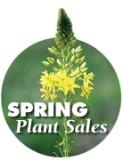
The UC Davis Arboretum and the California Center for Urban Horticulture are working with wholesale and retail nurseries in California to make sure that the All-Star plants are available for home gardeners. Check with your local retail nursery to see if they carry All-Stars, check the online list, or go to one of the Arboretum’s plant sales if you are in Northern California. These plant sales draw gardeners from all over Northern California who want unique, specialty, or All-Star plants that perform well in California: plant sale dates.
Pollinator gardening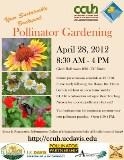
If you want to create a pollinator paradise in your landscape, you might want to attend the Pollinator Gardening workshop at UC Davis on April 28, 2012. Sponsored by the California Center for Urban Horticulture at UC Davis, this full-day workshop will have entomologists, horticulturalists, and design experts present to inspire gardeners and equip you with the tools to provision pollinating insects in your own landscape. Learn what you can do to support healthy bee communities.
Roses, roses, roses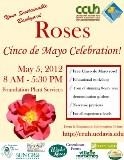
Rosarians and garden amateurs will all enjoy the annual Rose Day workshop at UC Davis on May 5, 2012. Sponsored by the California Center for Urban Horticulture, the program features rose-breeding experts Dr. James Sproul and Jacques Ferare, rose tours on the UC Davis campus, and a rose plant sale.
The New Sunset Western Garden Book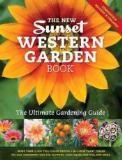
The ninth edition of the legendary garden book, The New Sunset Western Garden Book, was recently released, and features over 2,000 color photographs (goodbye, little hand sketches!), a complete redesign, an encyclopedia of 9,000 plants, and a “plant finder” section.
Debbie Arrington, garden writer for the Sacramento Bee, and Debra Prinzing at the LA Times provide additional information and reviews of the new edition.
New plant hardiness maps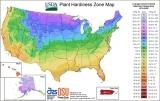
The U.S. Department of Agriculture recently released a new version of its Plant Hardiness Zone Map, updating a useful tool for gardeners and researchers for the first time since 1990 with greater accuracy and detail. The new map is available online. The map offers a Geographic Information System (GIS)-based interactive format and is specifically designed to be Internet-friendly. The map website also incorporates a "find your zone by ZIP code" function.
While the map is useful in many areas of the U.S., some gardeners in California find it not specific enough for our multitude of microclimates (Mediterranean, maritime, mountainous, and more), so many California gardeners still rely on Sunset’s climate zones.
